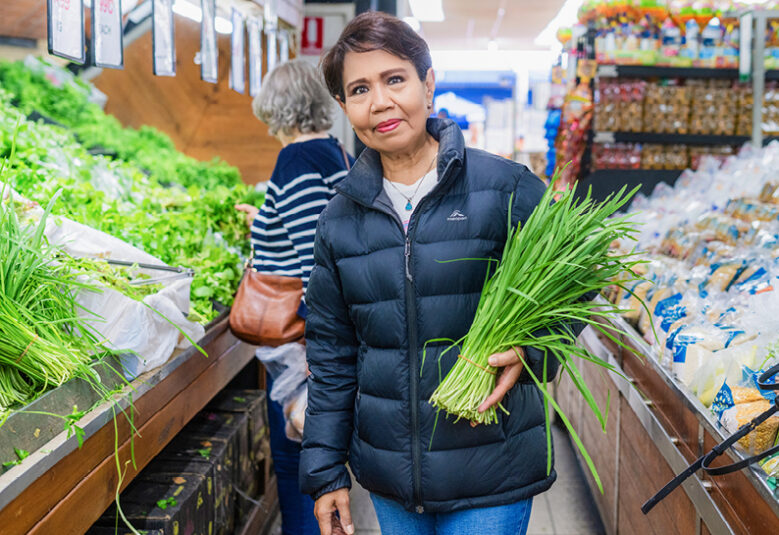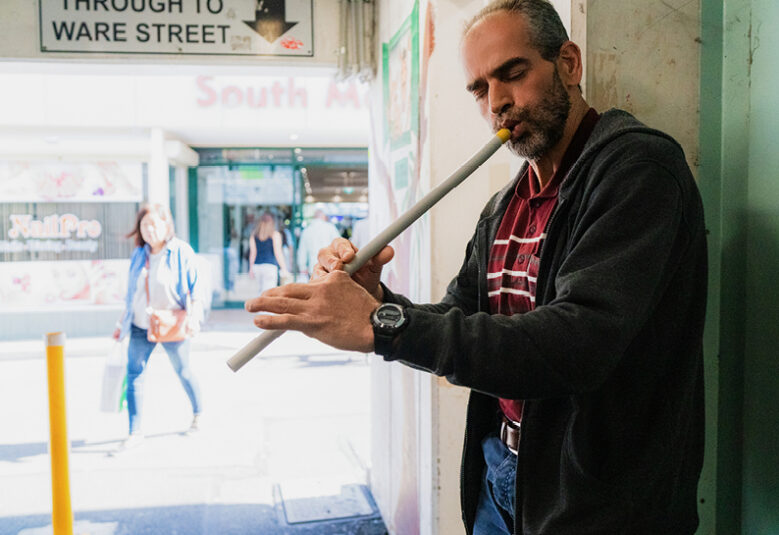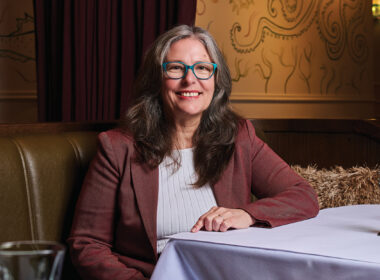In one of NSW’s most disadvantaged suburbs, where over two-thirds of the population speaks a different language, Fairfield Women’s Health Service provides essential support to women in need. But for their Operations Manager, Elly Dang, it’s more than that. It’s about connecting the community.
Of all the suburbs across Sydney, Fairfield suffered the most during the COVID lockdowns, according to Elly Dang, Operations Manager at the Fairfield Women’s Health Centre.
The area, nestled between Parramatta and Liverpool, is home to more than 200,000 people and has one of the country’s highest rates of low-income earners. According to the Australian Bureau of Statistics’ Socio-Economic Indexes for Areas (SEIFA), the Fairfield LGA ranks number one in the state when it comes to socio-economic disadvantage. And on top of everything, over 44 per cent of its population is considered low income.
Fairfield felt isolated during the lockdowns, which made it particularly difficult to deal with women facing complex mental health issues. “It was a really hard time,” Dang recalls. “The number of women attending our service with complex mental health issues and domestic violence increased significantly.” Many of these women struggle with technology on top of language barriers (79 per cent of households don’t use English). “They can’t get access to information, and they don’t even know how to use their phone.”
Dang recalls her team spending hours patiently helping women to install Zoom for meetings and support groups.
The Fairfield Women’s Health Service is the only women’s health centre funded by NSW Health that provides health, wellbeing, legal support, and group activities to women refugees and from disadvantaged backgrounds in the LGA of Fairfield. To accommodate these necessities, Dang explains that everyone on the staff is bilingual and bicultural to better understand the challenges women in the area are facing. “It makes it [easier] to understand them,” she says.
They also provide services of intake assessment, intake referral and case court counselling, working closely with Bankstown Justice Support Centre in assessing the needs of the women in the community and bridging the connection between the people who need legal support, and the services that can provide them. After reaching out to the women in the community about their needs, Dang’s team invites other services – the Justice Support Centre, Legal Aid, Fairfield City Police, etc. – to give talks about their issues. All services are free for adult women who reside in the Fairfield LGA.
“We have the intake team who do the initial assessment”, Dang explains. “If they are eligible for the service here, they will be put through with our [resident] practitioner, but if not, we will link them with other services.”
“We don’t turn them away without them knowing anything or where they need to go.”
Fairfield is a complex multicultural community, where almost 70 per cent of the population speaks a language other than English, including Vietnamese, Assyrian, Arabic, Chinese and Khmer. “The good thing, the strength of this community, is everyone is welcome and they uplift and empower each other”, Dang says. They have two sites, one in the heart of Fairfield and the other opposite Cabramatta Plaza, separated by a quick seven-minute drive, which illustrates two important points. First, the different demographics across the area and second, the lack of mobility between suburbs. They worked to open a second site to provide the same service to the communities in Fairfield, which were mostly Assyrian and Arabic speaking.
Lack of transport options can be a reason for the lack of mobility, but Dang points out that many women feel more comfortable staying close to their own communities. “Transportation is one of the reasons, but not everything”, Dang continues, […]because of the language barrier, [some women] prefer to be somewhere around their community.”
So, between the two sites, the Fairfield Women’s Health Service provides support tailored to each community’s cultural and language specifications: Vietnamese, Khmer, and Chinese in Cabramatta, Assyrian or Arabic in Fairfield.
Part of the problem Dang faces is reaching out to women who need support, even when they’re only around the corner. To women experiencing domestic violence and mental health issues, it’s difficult to ask for help if they think they risk being demonised by their own communities, or worse, face deportation when, in many cases, their husbands and partners are also their sponsors in the country. Their approach is to connect with women through group and activity meetings. “It’s a lot easier for them to say to their husband and partner, ‘ Okay, I’m going to Fairfield Women’s Health Service for yoga class,’ or something like that, ” Dang explains. “And then all those groups are facilitated by our highly qualified practitioner at the centre”.
This way, they can slowly gain their trust while at the same time helping the women interact with their immediate community. FWHS provides not only yoga classes but also nutrition classes, programs to develop digital skills, activity groups, and social support groups.
If the women are conflicted about coming to their offices and joining one of the group meetings, they try to encourage them to attend, for example, Zumba dance classes. Dang confesses that when she joined the team as service coordinator, she started to organise these activity groups. What started with three people per session evolved to forty or fifty. “[Faifield Police] say this is one of the most engaging groups [they’ve attended] because people ask questions, and sometimes [the women] don’t dare to go to the police station to ask questions.”
It’s a continuous relationship with them. Dang doesn’t talk about them as clients or victims, but just women, people from her community who her team is supporting. Dang points out that even if they report a situation of DV, it can happen that the next day they come back regretting their decision. “But at least we provide them with information”, Dang says. “We provide a safety plan and, later on, if something happens, they have a safety plan ready for them, and we can link them with other services.”
By patiently forging connections, relationships are formed beyond the centre’s service. Dang speaks candidly about one particular case; asingle mother from Vietnam, whose son has autism. The woman voiced suicidal intentions and an ambulance often had to be called to help her. The whole team gathered from a dietician, a counsellor and a case worker, and eventually they managed to get the son into childcare, freeing the mother to take care of her issues. Dang says when the mother returned two years later – she had found a job, could stay in Australia, and her son was healthy.
“The good thing, the strength of this community, is everyone is welcome and they uplift and empower each other.”
Elly Dang, Fairfield Women’s Health Service
This circles back to Dang’s point that no one is turned down. When the time is right, a caseworker links the woman to the right legal services, provided they are eligible, and continues to provide support throughout the process. Dang explains, “For example, if they are eligible for legal aid, we will help them make sure the team receives the referral and makes the booking.” Often the clients would rather meet at the FWHS’s offices, where they feel safe, and an interview with the solicitor can be arranged over the phone. “We don’t just give them the number and that’s it.”
But what happens if a person is not eligible for Legal Aid? It’s hard, Dang confesses. She recalls a woman in the process of divorcing her husband who didn’t have funds to pay for legal support, but because she had a house in her name, she wasn’t eligible. But her team didn’t leave her to her resources. Dang says they put the woman in contact with the Justice Support Centre, made sure she had food vouchers to help her, and that she continued to have legal advice during the proceedings.
To complement that, FWHS occasionally works with some solicitors who provide pro bono support. A caseworker may receive feedback from a client about a helpful and affordable solicitor, someone to refer others to, when a similar case comes by. “But we are also looking [for more solicitors]. The more, the better.”
But the workload on her team has increased significantly in the past few years, and the current funding is not enough. This leads to staff burnout and affects how they can provide this essential service to vulnerable people. “We can’t keep the staff here because outside, the pay rate is more competitive than ours”. At the same time, they receive more outreach requests to meet the community’s demands. As an example, Dang mentions their dietitian, who is particularly popular when delivering classes on how to save money on food.
They are thankful for the support they receive from the rest of the community. They promote partnerships with other local community services, organise support groups or give health talks, and promote their services to the women there. “We don’t have enough resources, so that’s why we work together”, Dang says. At the same time, Legal Aid and the JSC often contact them about what topics the community and staff members need. Even with the extra funding the FWHS received, these inter-service partnerships have become essential to retain staff as much as possible, avoid burnout, and keep up with the demand, but Dang reiterates that it’s still not enough.
During the lockdowns, their approach even garnered attention from services in Melbourne and Canberra, wanting help to communicate information about COVID-19. “But after it finished, people kept coming, and we don’t have enough resources to continue helping them, ” says Dang.
Language appears to be the key. “Because people feel more comfortable talking with the bilingual staff who can understand their problem.”
“The great thing about working [here] is [how] we support each other,” Dang says. “After every heavy case, we debrief and talk to other people without giving the client’s name and details. We provide clinical supervision for all staff members here.” It’s a critical step if the service is going to retain these vital workers.
Photography: Kwa Nguyen









